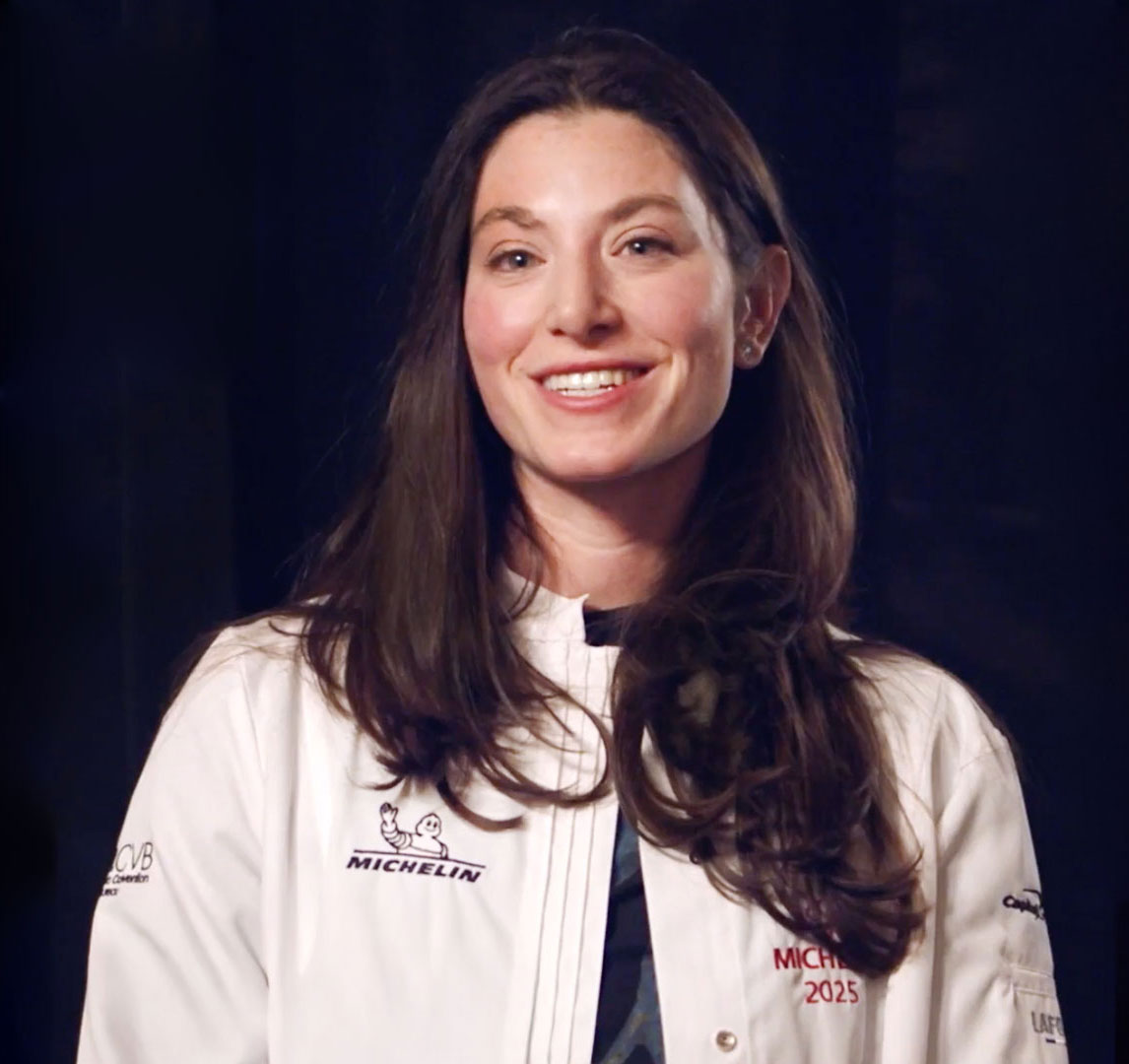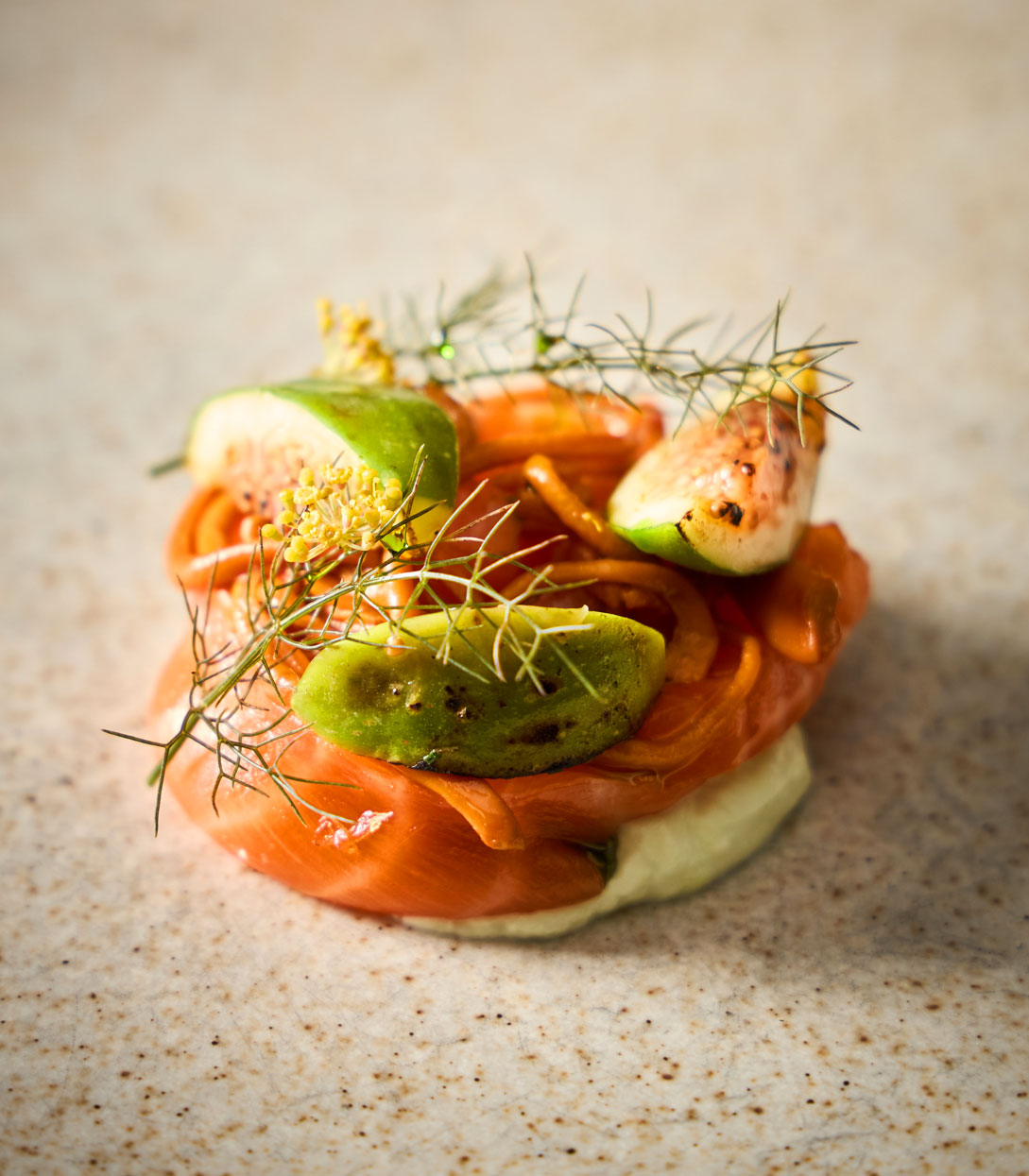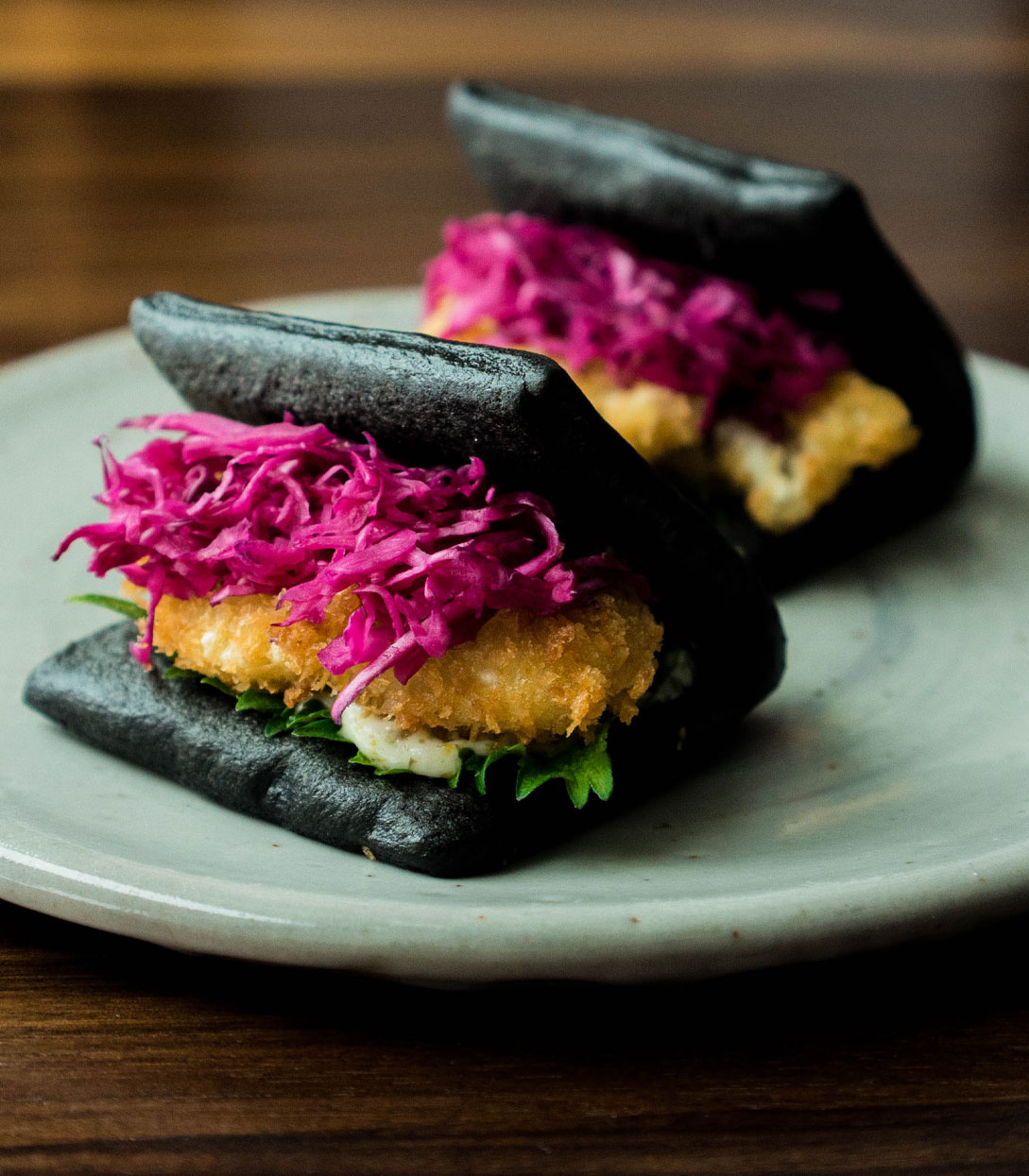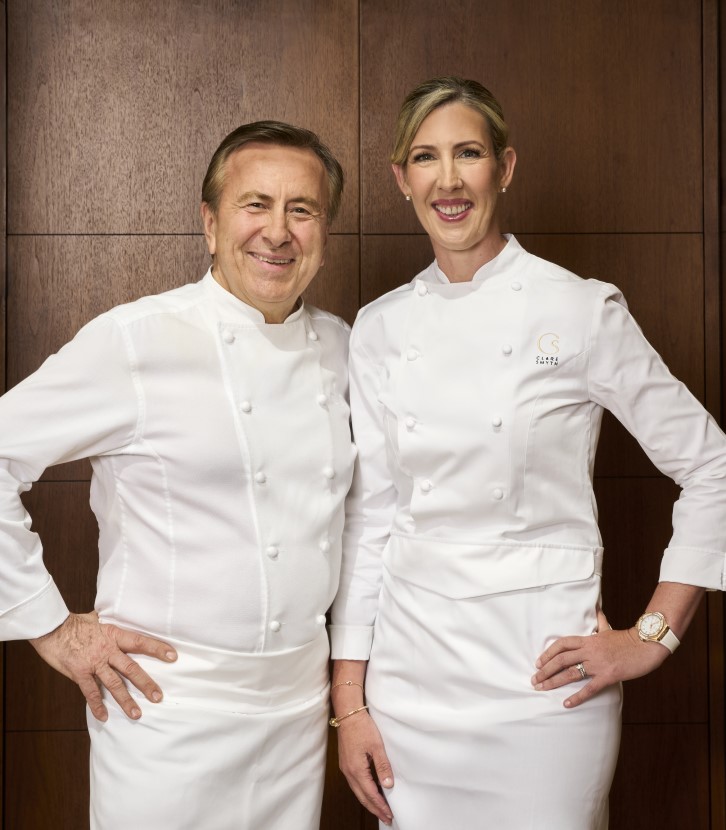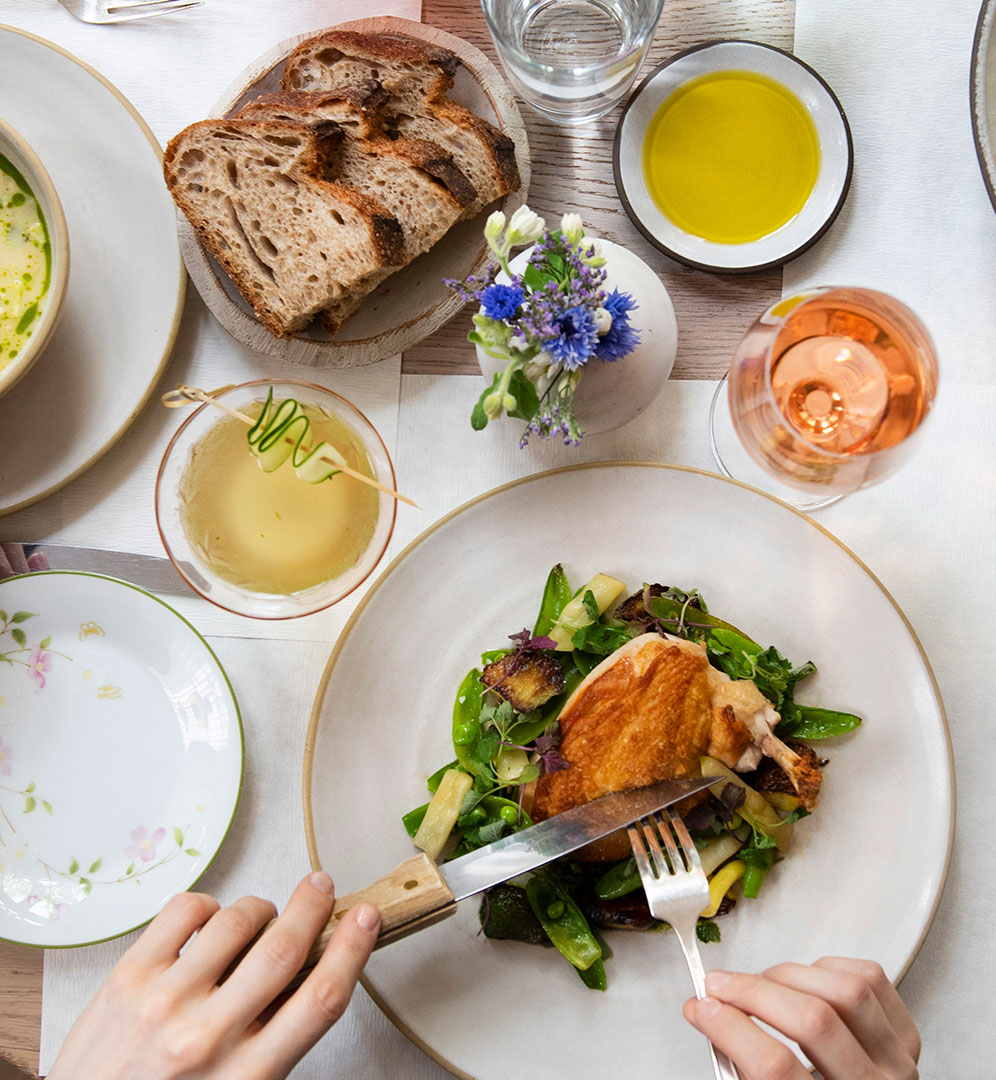Austin Joseph, the general manager of Sorekara in Orlando, has an internal clock tuned like a Rolex.
At the groundbreaking Japanese restaurant, it’s his superpower: Joseph and his team keep around14 nightly guests moving in synchrony through a multiroom, nearly 20-course tasting menu that can top four hours in length.
When the meal is over, as guests exit through a Zen garden past the gathered staff, diners often express a sense of shock: “Wow, what time is it?”
“The restaurant is built all around time and focusing on those moments and preserving time. But literally for us to accomplish this, we need guests to forget about time,” Joseph says. “To orchestrate that—to make a guest not feel time—we have to think about time nonstop.”
For his ability to master the hourglass—and for choreographing an exceptional meal that so enthralls its audience—Joseph was named the 2025 MICHELIN Guide Florida Service Award Winner, presented by Capital One Dining.
In an interview, edited for length and clarity, Joseph discusses the extraordinary closeness of his team—he’s engaged to Sorekara’s head of hospitality and the restaurant’s captain is his best friend since childhood—philosophies around good service, and the time he surprised a customer with a visit from the restaurant’s Shiba Inu mascot.
What happens when a guest arrives at your restaurant?
We want the majority of the people coming in to have heard something about the restaurant but not enough yet so that they kind of want more, almost like a movie trailer. When the guest gets here, they're greeted outside by our captain, Eugene Manalaysay, and Tracy Tran, the head of hospitality, is standing at the hostess stand. There's no music playing outside until the guests leave, so when they first come in there's nothing they can hear. They just walk in and music hits them as they enter the hostess room. We give them a warm towel—or a cold towel in the hotter months—and from there, they get ushered into a waiting area where they sit before a giant painting. Their first bite is already inside of that room, and they don't know it yet.
Tracy will tell them the idea behind Sorekara: the name translates into "and then" in Japanese, so the whole idea of the restaurant is ever evolving and constantly changing, not just the menu, but everything we do. She tells them to live as freely as they can with the guests they came with, instead of through their phone for the night. You can use your phone—we're not gonna take it away from you—but we really try to encapsulate them for the next four hours in time.
At that point, I'll walk into the room and tell them more about what they’re going to experience for the night: throughout the evening, we're going to take a few moments to highlight the people that are indirectly a part of the restaurant, whether that's our farmers or our woodworkers. We're not going to invade their night, bombarding them with information. But for the front room, this first room, this one is a little less subtle, so I’ll explain the story behind the giant painting from a really great friend of ours, Kayou Kitakomi, from Kochi, Japan.
From there, I unveil what their first bite is, which rotates. It sometimes is just sitting already in the Zen garden on a little table, and you don't know it's there, because it looks like décor.

Is there an extraordinary level of planning that goes into your service?
There are so many moving parts and we have a small team. Our captain, Eugene, is my best friend of 25 years and Tracy, the head of hospitality, is my fiancé. We have Sorekara, which is open two nights a week, but we also have two other businesses that we manage—UniGirl and Zaru—and all we do is talk about work. The other day, I made 40 pots of rice at the onigiri shop—I was sitting there washing rice myself. Alongside me were Tracy, Eugene, our head of mixology Josue Villacis, chef-owner William Chen, and our sommelier Jason Howick works there once a week as well. All we do is talk about work constantly.
Eugene, Tracy, and I spend around about 150 hours a week together. It's a lot—including sleeping: we live in the same house. That's obviously not something that most guests really know. But I would say the planning aspect is everything, because it's every day of our life. It's just us planning everything.
What do you keep in the back of your mind when you’re doing all this planning?
Time, because the restaurant is built all around time and focusing on those moments and preserving time. But literally for us to accomplish this, we need guests to forget about time. They can't think about time throughout the night because they have to live in the moment.
Because it’s a multi-room thing, service has to be staggered for the guests to arrive for them to have this experience. To orchestrate that—to make a guest not feel time – we have to think about time nonstop. Everyone in the restaurant, whether they're in the back of house or in the front of house, has a watch on, everyone's looking at their clocks. We’re not aggressively looking, like watching people eat, but we're glancing throughout the night. We try to really make it as engaging as possible without being overbearing.

Where did that strong sense of timing come from?
I would say the time management aspect comes from doing every position in a restaurant. When you do something over and over, you're going to become more efficient. I've been a server and the first restaurant I worked at, Kuro (in the Seminole Hard Rock Hollywood, Florida), laid a good foundation because as a server there you would kind of build a tasting menu for your guests through the à la carte menu. You had to know all the firing times and ring every course in yourself. It’s been five minutes? Let me fire the next dish.
What do you hope a guest is thinking when they leave the restaurant?
It sounds a little corny or cliché but: transported. When you’re leaving, you almost haven't had time to digest the experience because it's almost overwhelming. It's like being at a sporting event and sitting really close—it's almost easier to watch it on TV. When guests leave, they do this walk through the Zen garden where they see the whole team: Chef William, myself, Tracy, Eugene, Jason our sommelier, Josue our head of mixology. They look back at the counter one last time and it’s been cleaned, the flower has been changed, it looks completely different than when they came in. And there is music playing outside, even though when they arrived, the music wasn't playing. And they just think, “Wow, what time is it?” They look at their phones and so many guests have told me, “Wow, I had no idea I was here for four hours.” I'm like, “Thank God,” because we don't want you leaving thinking this is great but I was just here way too long. But to get our message across, and for Chef William and Chef Francesco Benedetto to get their food and product across, the experience has to take that long. It can't just be a five-course menu. Otherwise, time doesn't matter anymore.

What does good service mean to you?
I think that the utmost form of hospitality on every level comes from your soul, who you are, just seeing people and talking to people. We work at an onigiri shop five days a week and sell people rice balls that cost five dollars, we run trays of udon that cost $20 at a different restaurant, and then we serve you truffles and caviar in another restaurant, and that could all be in the same day. There's a crossover of all those—every day I'm seeing our Sorekara guests at the other restaurants. As decorated as Sorekara is, it should almost feel like a dive bar. You should have a familiarity and not feel like you're in the wrong spot, no matter who you are.
Is Chef William’s dog, Uni, the restaurant’s mascot?
She's great. When Chef pitched us this restaurant, he had just got Uni. She was a puppy, but at that time he spent a lot of time in Japan. So, Tracy, Eugene, and myself all raised her. Chef always says she's the reason why we do this.
We had a guest that was here on her birthday; it was her sixth visit and they had the restaurant to themselves. They always hear about Uni and they’re always asking about her but they’ve never met her. They asked for pictures—like we literally texted pictures off of our reservation phone to them. And on her birthday, we brought Uni in to surprise her. She was in the restaurant after the guest finished eating. The guest freaked out!


Hero image: Austin Joseph



